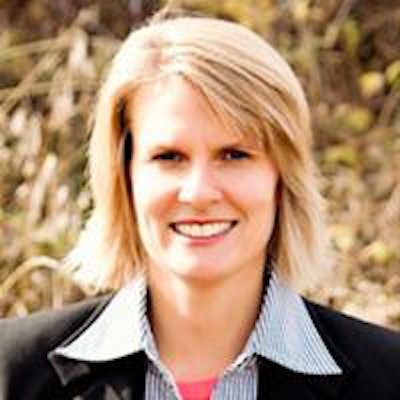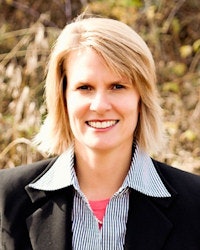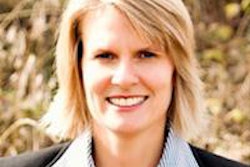
In the last of a three-part series describing the head, hands, and heart side of dentistry, I want to consider the head of a dentist. Surely I cannot capture what is inside every dentist's head, but I would like to offer top tips for the development of one portion of the dental brain -- the part that deals with money. It's no secret that this portion of the brain, dealing with the business side of dentistry, is underdeveloped for most dentists and needs direction on graduation from dental school. Here are my top six tips.
Find a mentor and be a mentor
The associate-dentist model works well for this type of apprenticeship-like relationship to develop. This concept, however, does not work if either side is unwilling to make a commitment to the relationship. The mentor must take time to nurture the mentee's growth.
 Lisa Knowles, DDS.
Lisa Knowles, DDS.I recommend blocking out specific time in the day to go over questions. Having been on both sides of the fence, I know how difficult it is to make time to teach someone about the business. I also know how helpful it is when someone does take the time to answer questions and explain complex business concepts.
When I first started out, I did not know what P&L meant. It was only later that I learned that P&L was really PNL and stood for profits, net, and losses. I was that ignorant to the business side of dentistry. My dentist mentors, accountants, and consultants taught me a great deal about running a business. They filled my head with business strategies, important rules to obey, and dental specific tactics to improve my practice's bottom line.
Now, that I have this knowledge, I pass it on. I am a mentor more often than I am a mentee. Knowledge sharing is part of being a professional. Even though I get paid to do this as a consultant, I still give away a lot of free advice to colleagues to be part of this reciprocal process.
Ask questions
Dentists (and many others) have a complex about not knowing everything. Place "Doctor" in front of our names and somehow we feel obligated to know the answers to everything. We want to instill confidence in our patients, so we learn to have answers readily available. We get good at answering questions with authority. We get very comfortable with the clinical material and learn to solve problems with ease.
“We have not had nearly the amount of training for business decision-making as we have for patient care decision-making. We solve apple problems with orange thinking.”
Then, we turn to the business side of our practices, and we assume we can make the same kind of decisions. The problem: We have not had nearly the amount of training for business decision-making as we have for patient care decision-making. We solve apple problems with orange thinking. By not asking questions and admitting our weaknesses, we compound the business errors we make by first not asking for help, and, second, by not admitting to errors made in the first place. We are doctors first, and then we must learn how to run a business once we graduate (if not learned previously).
Some dental schools are now incorporating more business concepts into their curriculums; this will help, but there is still much to learn about a business once in it. Just like we do not know everything about dentistry the first year out, we cannot possibly know everything about a business either -- even with more added business-related classes.
Commit time to business development
It is easy to get focused on the clinical side of dentistry on graduation. We often have limited clinical experiences, and if we want to become more proficient in orthodontics or implant placement, for example, we must devote a great deal of continuing education time to this.
Consider waiting two or three years after graduation to dive into a time-intensive specialty or new technique. All of the time needed to become proficient in one narrow area may be better used to devote to business and leadership development. Other specialties such as pediatric dentistry or endodontics may require less time to get started, depending on each person's dental school experience.
Whatever continuing education is chosen, save time and money for business or practice management classes. In addition to many continuing education courses provided to dentists, local colleges are often good resources to learn about troubling business issues.
And hundreds of books on owning and running a business are available. Study clubs offer opportunities to find a good mentor, and they allow us opportunities to find like-minded dentists.
Get comfortable with money; it is very necessary
If your family never discussed money, and you are uneasy asking for money or managing money, this is one area that must be addressed early on. I listened to a lot of speakers and mentors, and then studied on my own to see what similar concepts continued to surface.
Because it is hard to know whom to trust with our money, taking advice from multiple sources is a great idea to learn about options. Then, once a level of proficiency is acquired, confident decision-making is possible compared with following the latest and greatest system or sales pitch. Never feel pressured by one person to make fast decisions when it comes to money. Ask questions. Gather data. Then, make sound decisions.
Avoid paralysis
Once information is gathered, make a decision and live with it. It's easy to get "heady" about money issues, because we do not want to make the wrong decision and potentially lose money. With the proper amount of research and informal discussions with colleagues, we can make better decisions and sleep easier with the final choice. And, if the less than optimal purchase or decision is made, correct it quickly and move on.
We all make mistakes. We all waste money. Learn the lesson and leave it behind. We get smarter and smarter with each decision when it comes to best business practices. Some of my worst decisions forced me to read different books, take better classes, and ask more questions.
Do a needs assessment
Do an assessment based on a head-hands-and-heart approach to determine what area in your personal development needs the most help. Maybe it is your clinical skills that are substantially underdeveloped because of a shortage of patients in dental school. Maybe it is your business acumen that is lacking because of little or no entrepreneurial experiences. Maybe it is your heart that is underdeveloped, and leadership issues contribute to the instability in your daily life.
Most of us need constant feeding in each of these head (business), hand (clinical), and heart (personal and professional development) areas. Reflecting on needs before graduation may be the most beneficial. For me, I knew I wanted the confidence to treat all kinds of patients when I entered private practice. I didn't have that confidence going into my senior year. Therefore, I decided to apply for a general practice residency to help me hone my clinical skills with medically compromised patients.
Determining what area is most in need depends on each person's desired pathway. Furthermore, the areas will change over the course of your career. By acknowledging the trifecta of troubles in dentistry -- those centered around our heads, hands, and hearts -- we can minimize the unfortunate outcomes of avoidance and neglect. There will be clinical, business, and personal development needs to fulfill if we want to perform as well-rounded professionals.
With a defined amount of time available, well-planned, lifelong learning becomes a challenge for any healthcare practitioner. With intention, we can be lifelong learners in each of these areas and maintain a sense of balance and control in a demanding yet highly rewarding profession.
Lisa Knowles, DDS, is the founder and CEO of IntentionalDental Consulting. For more information, contact her at [email protected] or 517-331-3688. Visit her blog site at Beyond32Teeth.com or website at IntentionalDental.com.
The comments and observations expressed herein do not necessarily reflect the opinions of DrBicuspid.com, nor should they be construed as an endorsement or admonishment of any particular idea, vendor, or organization.



















